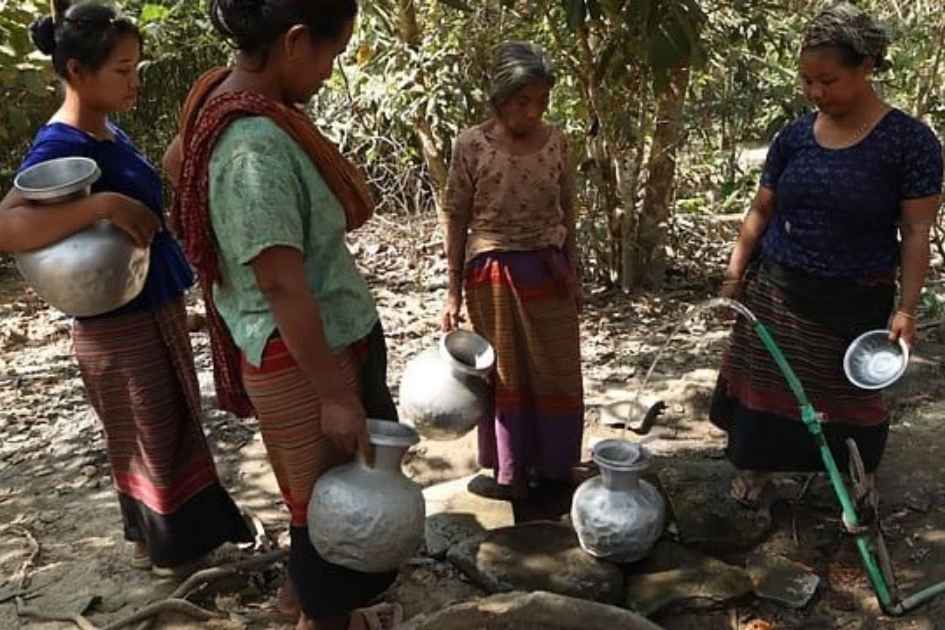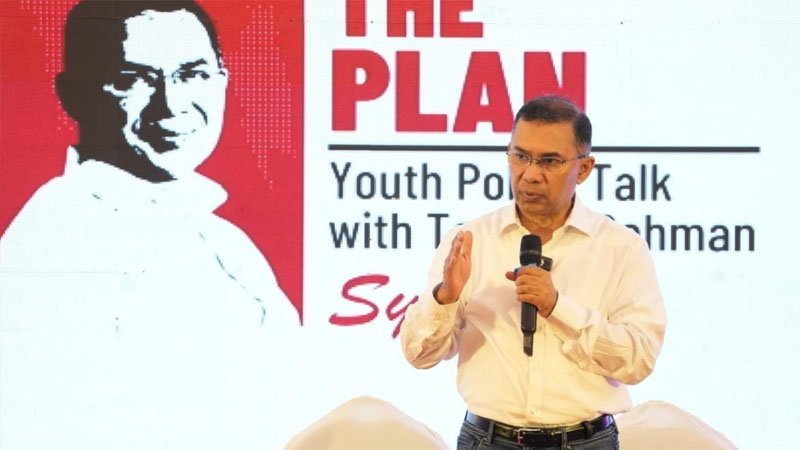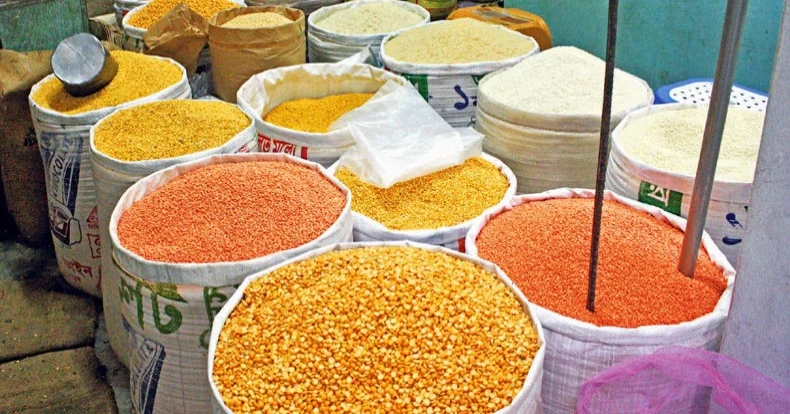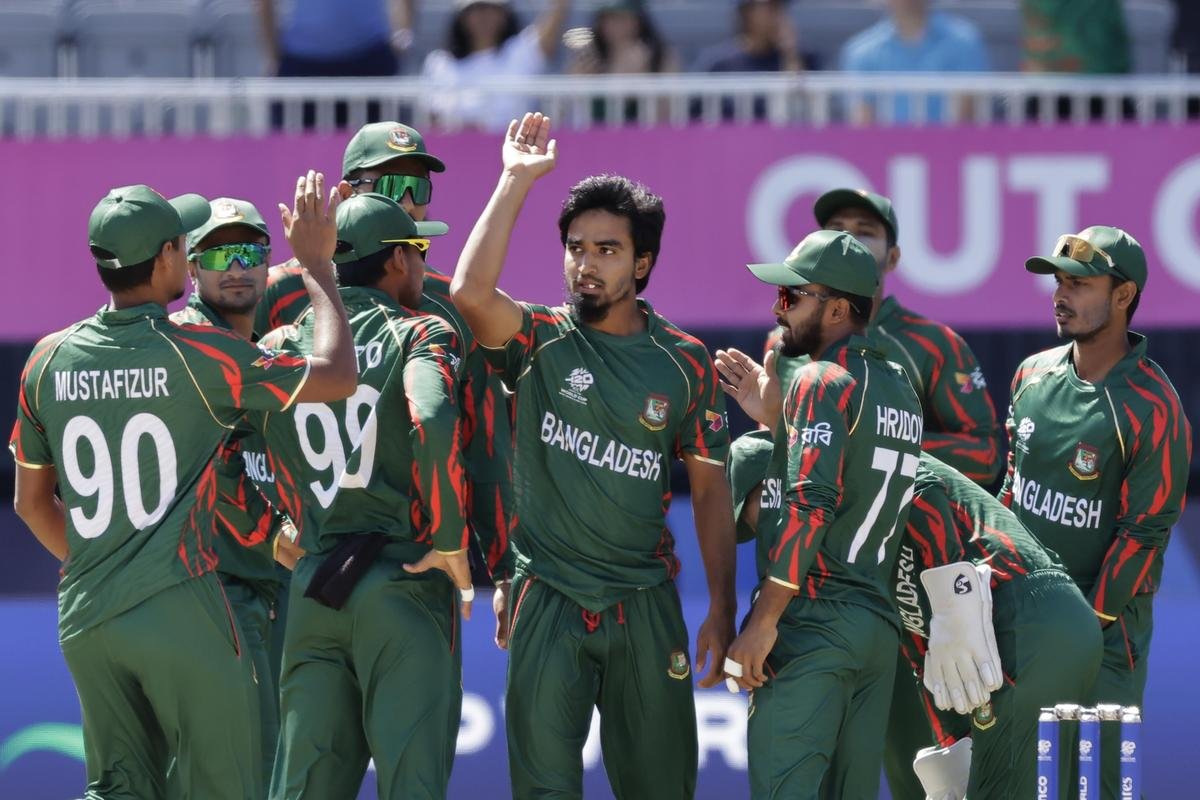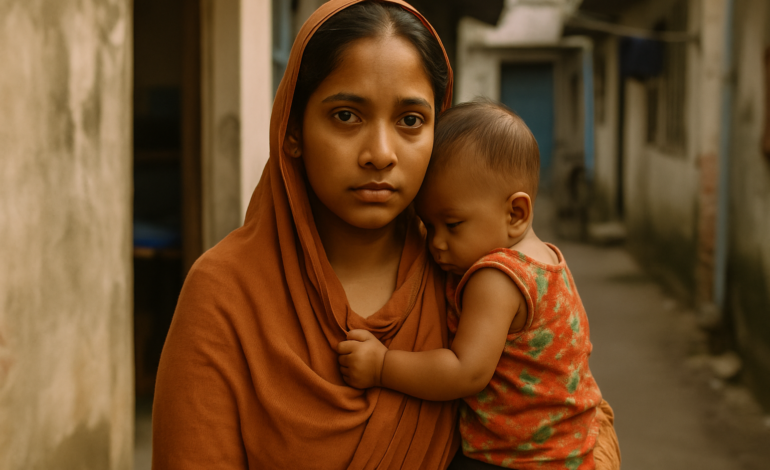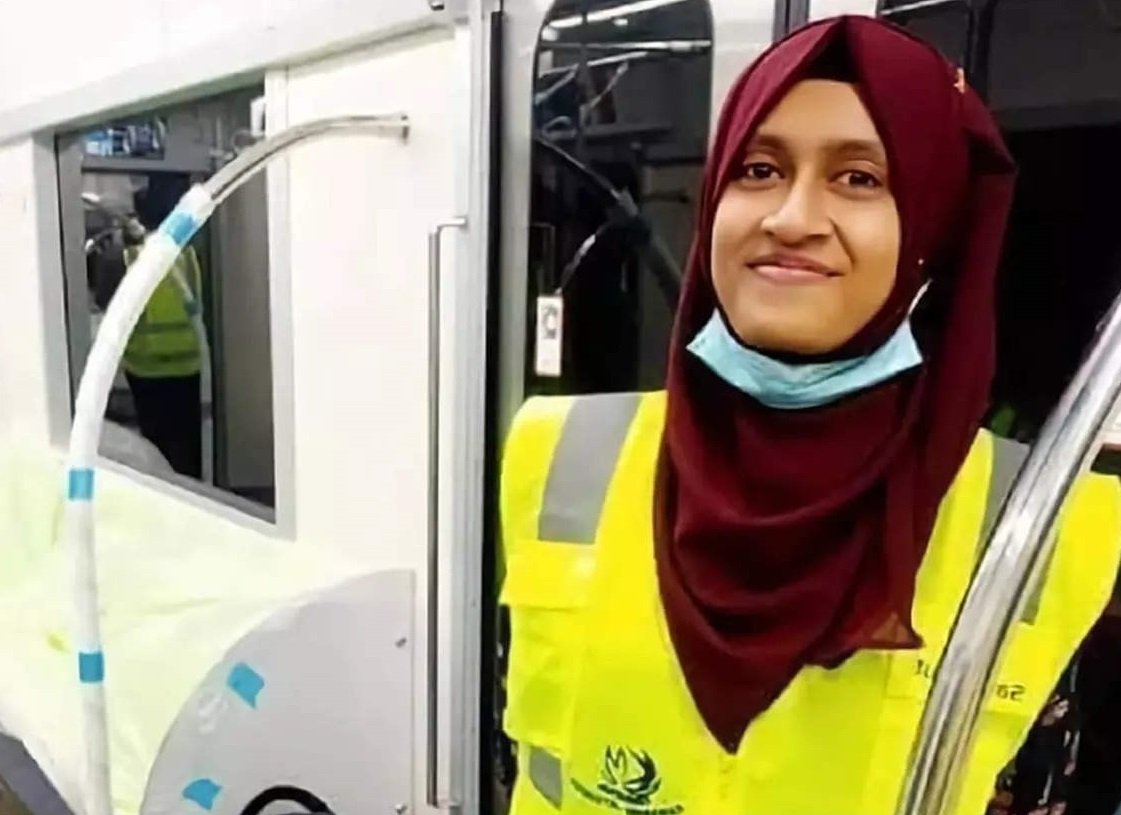Single Mothers in Bangladesh: Love, Judgment, and Resilience
In Bangladesh, the concept of motherhood is deeply respected—often idealized as selfless, nurturing, and strong. Yet, when the word “single” is placed before “mother,” the narrative suddenly shifts. Instead of admiration, many women face shame, social scrutiny, and systemic neglect. From divorcees and widows to women who chose single motherhood or were abandoned, these women embody resilience. Despite the judgment, they continue to raise children with strength, love, and unwavering dedication.
This article explores the lives of single mothers in Bangladesh—how society treats them, what legal and financial obstacles they face, and how they continue to push forward, breaking taboos and building better futures for their children.
Single Motherhood in Bangladesh: The Numbers Behind the Silence
The narratives of single mothers often remain unheard, overshadowed by societal norms and stigmas in Bangladesh. While precise statistics are elusive due to cultural sensitivities and limited data collection, existing studies and reports shed light on the growing prevalence and challenges of single motherhood in the country.
Rising Divorce Rates and Their Implications
Recent data indicates a significant increase in divorce rates in Bangladesh. According to the Bangladesh Bureau of Statistics (BBS), the divorce rate doubled from 0.7 per 1,000 individuals in 2021 to 1.4 per 1,000 in 2022. This surge is attributed to factors such as rising domestic violence and evolving societal attitudes towards marriage. The increase in divorces contributes to the growing number of single mothers, who often face economic hardships and social ostracization.
Child Marriage: A Persistent Challenge
Child marriage remains a pressing issue in Bangladesh, with profound implications for single motherhood. A study by BRAC revealed that over 60% of families have practiced child marriage in the past five years, with 44.7% of girls marrying before the age of 18. These early marriages often lead to early pregnancies and, in many cases, abandonment or widowhood, leaving young girls to navigate motherhood alone.
Furthermore, the Bangladesh Bureau of Statistics reported an increase in marriages among girls under 15, rising from 6.5% in 2022 to 8.2% in 2023. Such early unions, often driven by poverty and lack of education, contribute to the cycle of single motherhood, as young brides are more susceptible to marital instability and health complications.
The Triple Burden: Judgment, Economics, and Emotional Labor
1. Judgment from Society
A single mother often carries a silent stigma. Whether divorced, widowed, or unmarried, she is seen not as independent but as incomplete — and sometimes even immoral. Neighbors gossip, landlords hesitate to rent, and schools subtly question her child’s background.
Conservative cultural norms worsen the situation. Even when a woman is widowed, she is expected to remain in mourning, abstain from public outings, and live quietly — lest she be seen as “loose” or “attention-seeking.”
2. Financial Insecurity
For many single mothers in Bangladesh, money is a daily worry. Without a partner to share the cost of living, they must cover everything themselves — rent, food, school fees, medicine, and emergencies. If they were homemakers before, it becomes hard to find work again, especially with young children at home.
Some manage by working as domestic helpers, garments workers, or schoolteachers, but the pay is often too low. Many take up jobs in the informal sector, where there’s no job security or benefits. One sudden illness can wipe out their savings.
In rural areas, women may lack land rights or access to agricultural income due to male-dominated inheritance practices. In urban areas, high living costs and workplace harassment add another layer of struggle.
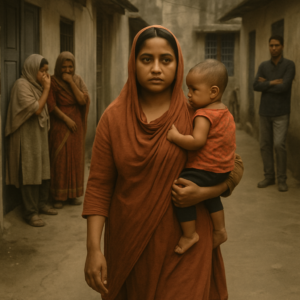
3. Emotional and Mental Health Struggles
Single mothers are not only providers but also sole nurturers. Without a co-parent, they handle everything — homework, illnesses, discipline, and emotional support. This constant stress often leads to anxiety, depression, or burnout. Yet mental health services are largely inaccessible or unaffordable in Bangladesh.
Many mothers also feel isolated, especially when estranged from their natal families due to shame or disagreement. Emotional support becomes a luxury few can afford.
Guilt is another silent burden. Many mothers worry about their children missing out — not just on luxuries, but on love and stability. They often overwork themselves to compensate, sacrificing their own health and mental well-being.
Shame in the Name of Honor: The Cultural Backlash
Single mothers often face a harsh cultural response. Instead of being supported, they’re judged — both online and offline. Gossip spreads, people question their character, and even strangers feel entitled to comment on their lives.
On social media, they are trolled for dressing a certain way or speaking up. In local communities, especially rural areas, a woman without a husband is often viewed with suspicion. Some face harassment or unwanted advances, simply because they’re seen as “unprotected.”
To “fix” their situation, families sometimes pressure them into second marriages — often with older, controlling, or abusive men. The goal isn’t love or stability, but to restore a sense of social “respectability.”
Even in educated circles, the idea of a single mother is still seen as unfortunate, not normal. This constant cultural judgment makes their journey lonelier, yet many continue to stand strong — proving that dignity doesn’t need approval.
The Legal System: A Double-Edged Sword
Bangladesh’s legal framework offers certain protections for single mothers, but in practice, these safeguards often fall short, leaving many women vulnerable and unsupported. While laws exist on paper to ensure child custody, maintenance, and property rights, navigating the system is often a nightmare for women who lack financial resources, legal literacy, or social backing. The process is rarely empathetic — instead, it’s riddled with delays, stigma, and loopholes that tend to favor male guardianship over female autonomy.
Child Support and Maintenance
Under the Muslim Family Laws Ordinance, a divorced woman is entitled to maintenance during the iddat period (approximately three months) following divorce. However, beyond this period, there is no legal obligation for the ex-husband to provide financial support, leaving many single mothers without sustained assistance.
Child Custody Laws
In cases of divorce, Bangladeshi law generally grants mothers custody of sons until the age of seven and daughters until puberty. However, this custody is under the supervision of the father, who remains the legal guardian. Furthermore, a mother’s right to custody can be challenged if she remarries, relocates away from the father’s residence, or is deemed to lead an “immoral” life.
Property and Inheritance Rights
Inheritance laws in Bangladesh are influenced by religious and customary practices, often disadvantaging women. For instance, under Hindu law, daughters typically do not inherit property if there are surviving sons. Even when women are legally entitled to inherit, societal pressures often compel them to relinquish their rights in favor of male relatives.
Administrative Barriers
Single mothers frequently encounter bureaucratic challenges when accessing services for their children. Until recently, educational institutions required the father’s name on student information forms, hindering children of single mothers from enrolling in schools. In a landmark 2023 verdict, the High Court ruled that the mother’s or legal guardian’s name is sufficient for such documentation, a significant step toward recognizing single-parent families.

Support Systems: A Work in Progress
While single mothers in Bangladesh face numerous challenges, several support structures have begun to emerge, offering assistance and empowerment.
NGO Initiatives
Organizations like BRAC have been instrumental in providing legal aid and skill development programs. BRAC’s Human Rights and Legal Aid Services (HRLS) program offers legal assistance to disadvantaged women, helping them navigate complex legal systems. Additionally, BRAC’s Social Empowerment and Legal Protection program focuses on organizing girl brigades and providing life skills training, aiming to increase aspirations and improve overall well-being.
Naripokkho, a women’s rights organization, also plays a vital role in advocating for gender equality and providing support to single mothers through various programs and initiatives.
Online Support Networks
The rise of social media has led to the formation of online communities where single mothers can find support and share experiences. Facebook groups like “Single Mothers Support Group” and “Single Mom Bangladesh” serve as platforms for single mothers to connect, seek advice, and offer mutual support.
Microfinance Opportunities
Microfinance programs have provided single mothers with opportunities to achieve financial independence. Institutions like BRAC offer microloans and financial services tailored to the needs of women, enabling them to start small businesses and improve their livelihoods . However, it’s important to note that while microfinance has empowered many women, it is most effective when combined with support services that address social norms and provide comprehensive assistance .
Government Support
The Bangladeshi government has implemented programs to support widows and women abandoned by their husbands. As of recent reports, approximately 2.9 million individuals receive allowances under these programs, with monthly stipends increased to Tk 650. While these initiatives provide some relief, challenges remain in terms of accessibility and adequacy of support.
However, a coordinated state-level policy is still lacking. Single mothers are not recognized as a vulnerable group in national planning documents or poverty alleviation strategies — a glaring gap that needs urgent fixing.

The Children: Growing Up Stronger
Children of single mothers often grow up more resilient and empathetic. Research shows that what matters most for child development is not the number of parents but the presence of a caring, supportive environment. Yet these children often face bullying or discrimination at school due to the absence of a father.
Single mothers also raise daughters who see independence as normal and sons who learn to respect women. In a patriarchal society, that is a quiet revolution.
Shifting Mindsets: Media, Education, and Urban Change
While stigma against single mothers remains entrenched in many parts of Bangladesh, subtle yet significant shifts are occurring—particularly in urban areas—through the influence of media, education, and public discourse.
Media Representation
Television dramas and online content are gradually portraying single mothers with greater nuance and empathy. For instance, the Bangla drama Single Mother, featuring Zakia Bari Momo, delves into the complexities of a woman’s life after separation, highlighting her resilience and challenges.
Educational Advancements
Educational progress has also played a role in changing perceptions. Between 2004 and 2018, there was a significant increase in maternal education levels in Bangladesh. The proportion of mothers with higher education rose by 61%, while those with no education decreased by 62%. This advancement in education correlates with a broader acceptance of diverse family structures, including single motherhood, especially among the middle class and educated urban populations.
Influence of Public Figures
Prominent figures in the entertainment industry have also contributed to this shift. Actress Jaya Ahsan, known for her roles that often challenge societal norms, has used her platform to advocate for women’s independence and autonomy. Her portrayal of complex female characters and her involvement in social causes have sparked conversations about women’s roles in society.
Still, these shifts are mostly urban and slow-moving. For every voice of support, there are still ten voices of blame.
What Needs to Change: Solutions and Policy Recommendations
1. Legal Reform
-
Ensure birth certificates and school forms accept single-parent applications.
-
Strengthen child maintenance enforcement through fast-track courts.
-
Secure land rights for women, especially widows and divorced mothers.
2. Social Awareness Campaigns
-
National media campaigns to destigmatize single motherhood.
-
Community workshops, especially in rural areas, about women’s rights.
3. Economic Opportunities
-
Reserved job quotas in government and NGOs for single mothers.
-
Access to low-interest loans and childcare support.
4. Mental Health and Peer Support
-
Establish helplines and counseling services for single mothers.
-
Encourage and fund peer networks, both offline and online.
Redefining Strength
Single mothers in Bangladesh are often judged before they are heard, shunned before they are helped, and ignored before they are acknowledged. Yet they continue — loving, providing, surviving. They are not broken, they are brave. And they deserve more than sympathy. They deserve support, respect, and rights.
To honor their resilience, we must rethink how we view family, womanhood, and dignity. Because in their quiet acts of strength, they are rewriting the story of what it means to be a mother in Bangladesh.
Want to Show Some Love?
You don’t need a special day to appreciate everything a mother does—especially those walking the single path. Whether it’s a small act of kindness or meaningful support, here are 10 thoughtful ways to celebrate mothers that go beyond just one day.
